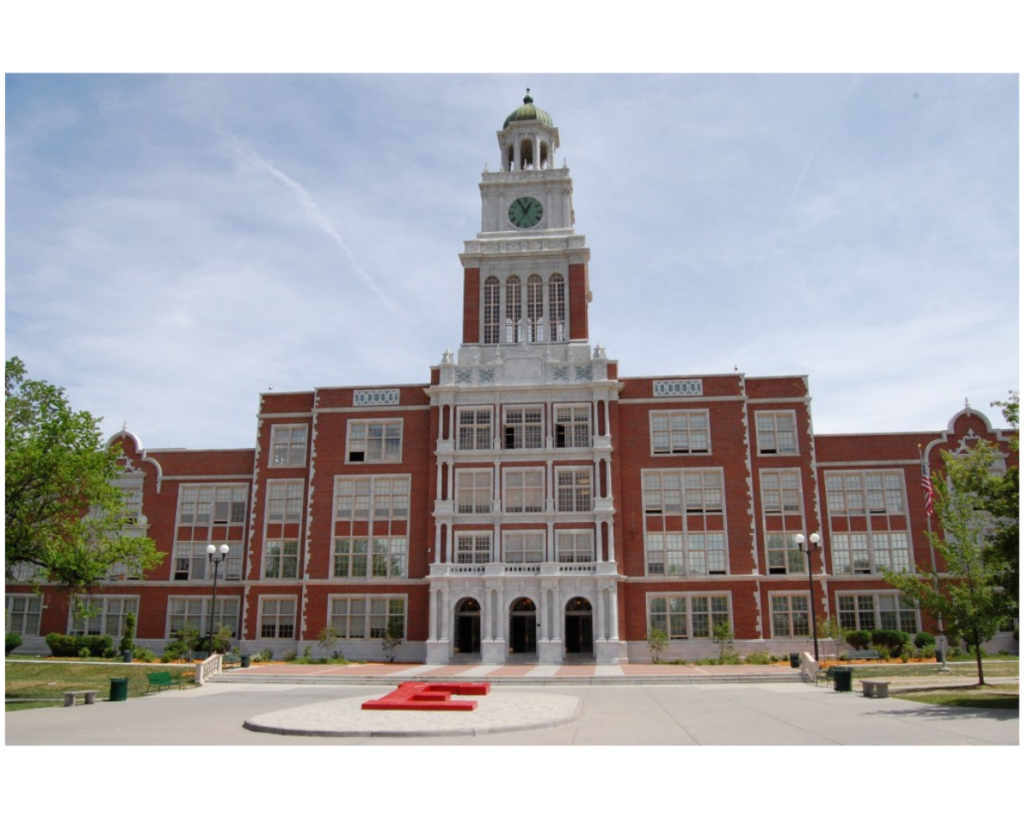Author’s note: I offer these thoughts with the caveat that I am a 66-year-old white man, with many blind spots and a set of life experiences very different from those of people more directly affected by these issues.
The murder of George Floyd almost three years ago set in motion a long overdue reckoning over police violence against communities of color across the country.
It also led directly to the removal of armed – and experienced-in-working-with-students – Denver Police School Resource Officers from Denver Public Schools at the beginning the 2021-22 school year.
As Wednesday’s shooting of two administrators at East High School demonstrates in the starkest possible terms, that decision by the Denver Board of Education was a grave mistake, and one with tragic consequences. Not surprisingly, no one involved is acknowledging this, at least not publicly.
Today’s (Thursday) announcement that DPS is asking the city to place two armed police officers in every high school for the remainder of this school year is welcome news, especially, no doubt, for the parents of children who attend those schools.
But this could and should have been done months ago. It might not have changed anything that has occurred over the past two months, or saved the lives of two East High students who have died. But we’ll never know.
As you can see in this column, those closest to the situation, school leaders, decried the decision to remove SROs shortly after it took effect, and even warned of dire consequences. It’s worth republishing a few key paragraphs here:
From the beginning, principals in the schools that hosted officers objected to the decision. They argued that most of the officers were people of color, who had worked in the schools for years and had established strong relationships with students.
They also said that the resource officers understood the dynamics among students in their schools, knew how to defuse situations, and, on the occasions when they needed to call for back-up, got a quick response and were able to give the responding officers context to keep situations from escalating.
At a school board public hearing on the issue on June 11, 2020, North High School Principal Scott Wolf had this to say about the pending removal:
“There is a lot of evidence from our school sites in Denver that have SROs that they are an incredible asset, and eliminating (them) is solutions-focused instead of root cause-focused…I do not think anyone except those of us who work with SROs understand what (they do) on a daily basis and how they serve as peace officers.”
As youth violence escalated in Denver during the pandemic, in-school incidents rose as students returned to school at the start of the 2021-22 school year. Marrero first sounded the alarm about “major” incidents in and around schools in the fall of 2021 (see article linked above).
He continued issuing warnings on occasion, but took few if any concrete actions to change the facts on the ground, until announcing Wednesday that he was placing armed officers at East when school resumes after spring break.
As Boardhawk contributor Vernon Jones Jr. wrote on Twitter this week, the city shows up in the schools every day. Yet schools aren’t equipped, staffed or funded to deal with these kinds of issues. That needs to change.
This is an issue where the people of Denver and their policy leaders ought to be able to set ideology aside and coalesce around a sensible solution. It’s deeply unfortunate that gun rights zealots have a stranglehold on the policy apparatus in Washington D.C. They’ve stymied every effort toward even modest federal gun control legislation.
This means that we must not and cannot wait for national laws that might never arrive to solve our daunting local problems.
So let’s set aside for the moment pipe dreams of ridding the streets of guns and devise some practical solutions. Together. Work on the larger issues must continue, but we are confronting an emergency in real time.
Today’s school board decision to reverse course and allow SROs back in high schools is a good first step, as pathetically late as it might be. It should be made permanent.
The board has also ordered Marrero to devise “a systemic Long-term Safety Operational Plan,” with community input, to take effect next school year.
DPS finds itself in the awkward position of having to go to the city government and police department hat in hand after making it clear that police, even the well-trained and popular SROs, were unwelcome on district property, unless an emergency occurred.
Today’s memo bemoans Colorado’s school funding parsimony, and says a lack of funds requires the city to step up and help pay for the cops who are suddenly seen by the board as the essential bulwark they always were.
The board also wants help paying for “as many as two additional mental health professionals (social workers, psychologists, psychotherapists, and/or therapists) to include but not limited to talk,group, family and/or art therapy at all high schools.”
We’ll see how that goes over with those who control the city’s coffers.
The irony here is that we will now have armed cops in schools again, but there is no guarantee they will be the former SROs. Let’s hope they are.
The board is correctly asking that whichever officers end up in schools are “appropriately trained in the use of firearms, de-escalation techniques, policing in a school environment, knowledgeable of the school community they intend to serve, and skilled in community policing.”
But it rings a bit of chutzpah to be making demands of an organization that as recently as two short years ago was regarded with withering contempt by some of the same people who are now pleading for its help.




